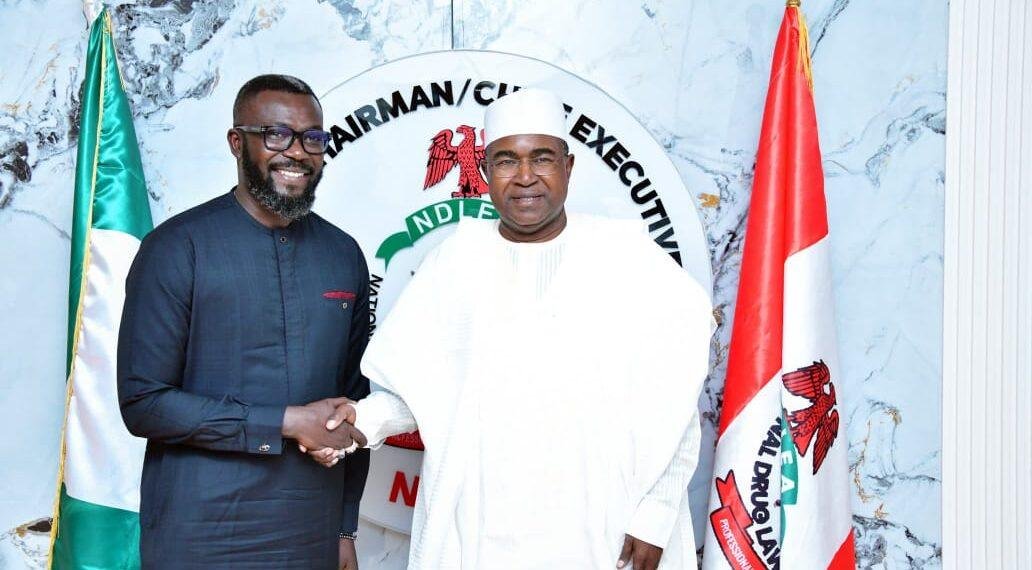The United Nations Office on Drugs and Crime (UNODC) has reaffirmed its commitment to support the National Drug Law Enforcement Agency (NDLEA) in its ongoing efforts to combat substance abuse and illicit drug trafficking in Nigeria.
The assurance was given during a courtesy visit by the new UNODC Country Representative, Mr. Cheikh Ousmane Toure, to the NDLEA headquarters in Abuja, according to Femi Babafemi, Director, Media and Advocacy of the agency.
Mr. Toure, who led a delegation of top UNODC officials, praised the NDLEA for its leadership in drug law enforcement across Africa, particularly in the West African sub-region.
He emphasized the need to strengthen collaboration between the two organizations to address the drug crisis, which he described as a root cause of many security challenges at the subnational level.
“It is very important for us to re-engage and re-energize the relationship between UNODC and NDLEA,
“My visit today is to express my commitment to reinvigorating this partnership so that it benefits Nigeria and the wider sub-region.
“Together, we can develop a greater plan to support the implementation of the National Drug Control Master Plan and enhance capacity building for West African member countries,” Toure stated..
NDLEA Chairman, Brig. Gen. Mohamed Buba Marwa (retd), expressed gratitude for UNODC’s longstanding support and highlighted the agency’s achievements in drug supply and demand reduction over the past four years.
He also outlined key areas where further collaboration is needed, including the agency’s alternative development programme, which aims to provide alternative livelihoods for cannabis growers.
Read also: NDLEA storm drug joints in Kano, arrest 18
“If we can provide viable alternatives for cannabis growers, it will benefit both them and society,” Marwa said. “This is one area where we seek greater collaboration and support.”
Marwa also called for assistance in conducting a fresh drug use survey to update the outdated 2018 data, emphasizing the need to assess current drug prevalence and emerging trends.
Additionally, he stressed the importance of developing a new National Drug Control Master Plan for the period beyond 2025, as well as enhancing capacity building and training for NDLEA personnel.
“Capacity building is key to our work,” Marwa noted. “We need more master trainers and field test kits to continue our efforts effectively.”
The meeting concluded with both parties expressing optimism about the future of their partnership and their shared commitment to tackling the drug menace in Nigeria and beyond.






